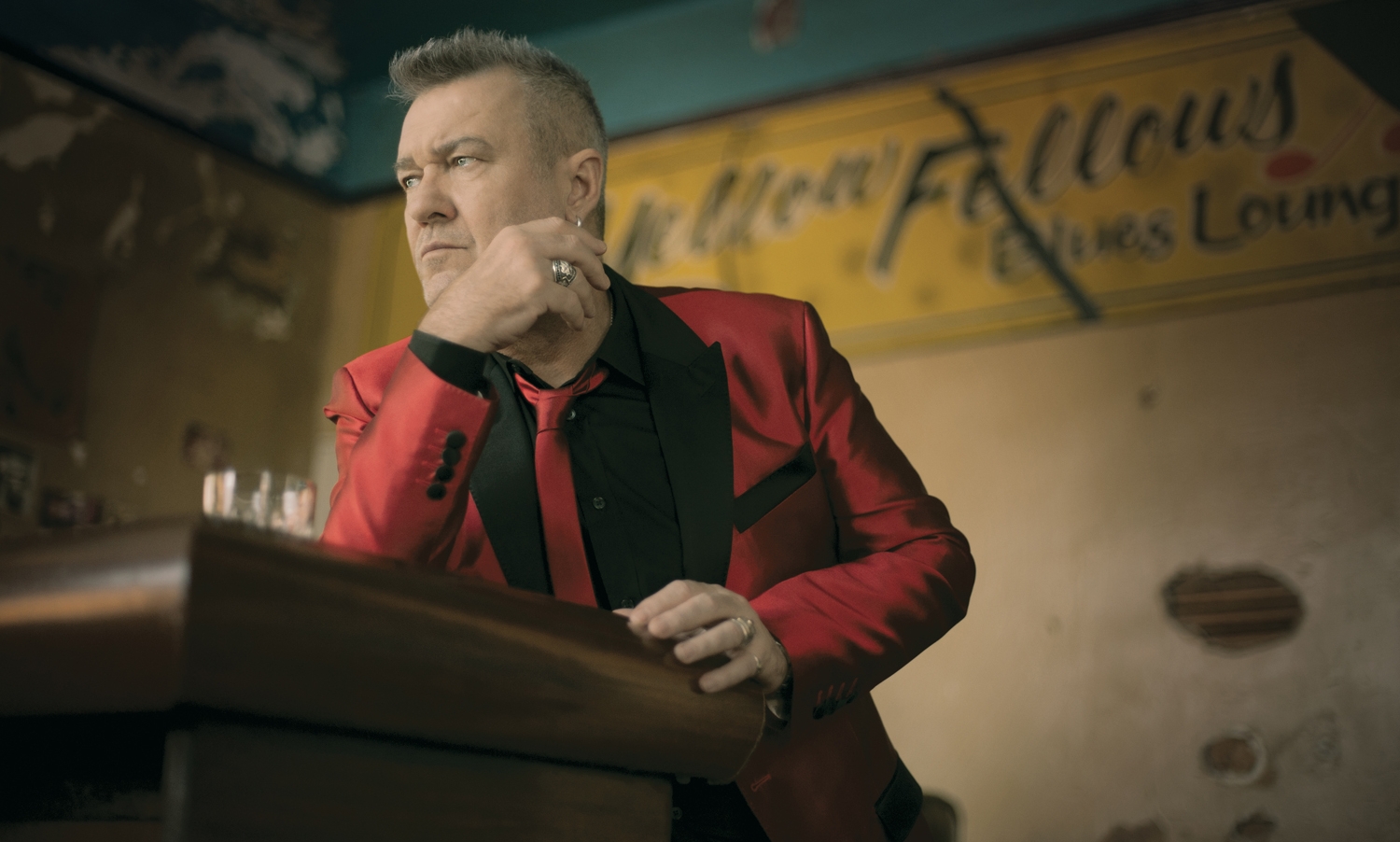“Within the past 12 months I’ve made two major records – Soul Searchin’ and the Chisel record [2015’s The Perfect Crime] – I did a Chisel tour and two solo tours, I wrote a memoir and I’ve written ten kids’ books that are coming out next year, as well as an album of songs to go along with them all with The Wiggles,” he says. All this from a man who celebrated his 60th birthday back in April. “I’m hyperactive,” Barnes says. “I just like to keep busy – I’m always working.”
Soul Searchin’ is the latest instalment in Barnes’ cover-album collection of tracks from a bygone era, as reinterpreted by his unmistakable paint-stripping voice. It began with 1991’s Soul Deep, which took in classic Motown hits and went a whopping nine times platinum. Its sequel, Soul Deeper, arrived in 2000; while a spiritual successor, The Rhythm and the Blues, was recorded in 2009. Rather than take in songs that are universally beloved this time around, Barnes knew that he wanted to make Soul Searchin’ a considerably different experience – both sonically and personally.
“I spent a lot of time with some friends of mine seeking out these diamonds in the rough,” he says. “I wanted to find these great songs that maybe people hadn’t necessarily heard. For one reason or another, these are the songs that missed the boat – but they should have been hits. The year I had making this album and writing the book at the same time really was a year of soul searching. I was unravelling my life, and at the same time I was stripping back these songs and trying to find myself within them. I was trying to place myself within a moment in order to be able to sing these songs well. The whole thing feels like an extension of me.”
The album was recorded in Nashville, where Barnes went on a journey to seek out the more obscure numbers that make up the tracklisting. This includes songs such as Solomon Burke’s Cry to Me, Don Covay’s Mercy, Mercy and Etta James’ I Worship the Ground You Walk On, which features a guest appearance from Booker T and the M.G.’s/Blues Brothers guitarist Steve Cropper.
“We were in rehearsals just the other day, trying out these songs for the Soul Searchin’ tour. We had a full horn section, four singers, two guitarists, two keyboard players. Naturally, the songs are sounding really good. About halfway through, I said that we should try out a couple of the songs acoustically – we do a lot of radio stuff, so it’s good to have in the back pocket. It struck me right away that these songs work just as well with one acoustic guitar as they do with a full band. That’s what it comes down to, at the end of the day. If it’s a good song, it’s a good song.”
Upon completion of a national theatre tour in support of Soul Searchin’, which will see Barnes and his band doing a full soul revue, focus will then shift to the release of Working Class Boy, Barnes’ long-awaited book to be released through Harper Collins. As anyone who has been around Barnes for longer than a minute can testify, the singer has managed to live a thousand lifetimes rolled into one. For the man lovingly known as Barnesy, however, he felt as though his wild years had already been told. When it came to writing Working Class Boy, he had a different story in mind. “There’s a lot of dark things people don’t know about me,” he says.
“The publisher pitched the idea of telling all of these old road stories from being in a rock band, but that’s not the kind of book that I wanted to write. I wanted to tell the story of my life – how I became the person that I am today, through the good times and the bad. The memoir is in two parts, and the first part is coming out in September. It deals with my life from when I was born – there is still very early parts of my life that I can remember, like the bed that I was born in. We left that house when I was six months old, so it’s amazing how vivid some of these memories are. It’s my life from leaving Scotland, moving to Australia and then leaving the Adelaide hills in the back of a truck on my first tour with Chisel at the age of 17. I remember looking into the rear-view mirror, and thinking to myself that I didn’t ever want to go back.”
BY DAVID JAMES YOUNG

